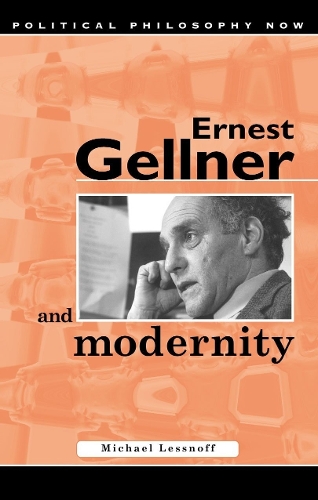
Ernest Gellner and Modernity
(Paperback)
Publishing Details
Ernest Gellner and Modernity
By (Author) Michael Lessnoff
University of Wales Press
University of Wales Press
31st May 2002
United Kingdom
Classifications
Tertiary Education
Non Fiction
Political science and theory
Analytical philosophy and Logical Positivism
History: theory and methods
320.01
Physical Properties
Paperback
224
Width 138mm, Height 216mm
268g
Description
Ernest Gellner (1925 - 1995) was one of the major thinkers of the twentieth century. He held major chairs in philosophy, sociology and social anthropology during his distinguished career and contributed to a wide range of political and philosophical debates, most notably in linguistic philosophy, the theory of political nationalism and the theory of history. Gellner was also an outspoken defender of the Enlightenment tradition and social democracy. In Ernest Gellner and Modernity, Michael Lessnoff presents a lucid and coherent exposition of Gellner's thought, both in terms of the specific areas in which he worked and the underlying consistency of his theoretical principles. Lessnoff provides a context within which to evaluate Gellner's contribution to social and political thought and, in keeping with the aims of the series, demonstrates the importance of Gellner's work for contemporary political philosophy.
Reviews
'Gellner mastered an enviable range of topics and only a commentator of the quality of Michael Lessnoff would be able to draw them together in this way' 'Lessnof brings to Gellner's work the synthesis it requires' 'Gellner's work is extraordinarily challenging and only very few people could make it accessible in the way Lessnoff proposes' 'This is the first book-length treatment of the work of Ernest Gellner. It is beautifully written, essentially accurate, covers the full range of the great polymath's thought, and offers very interesting judgements of its own.' (Political Studies Review Vol. 1 No. 1 Jan. 2003)
Author Bio
Michael Lessnoff is Reader in Politics at the University of Glasgow. He is the author of The Structure of Social Science (1973), Social Contract (1986), The Spirit of Capitalism and the Protestant Ethic (1994) and Political Philosophers of the Twentieth Century (1998)
